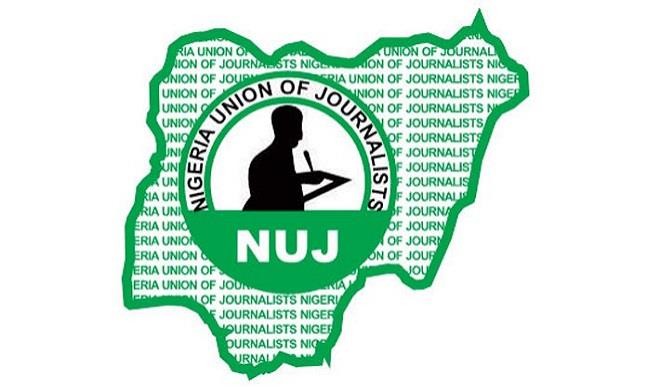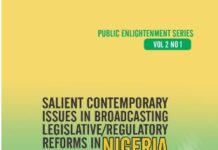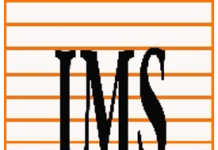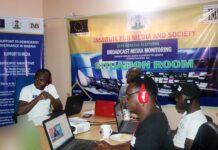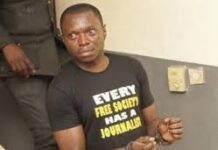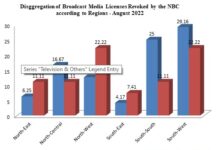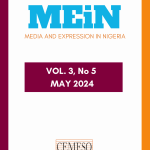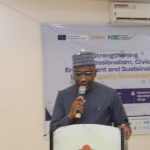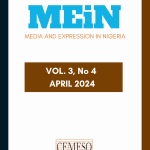Speakers at the 10th Wole Soyinka Centre for Investigative Journalism (WSCIJ) Media Lecture Series have charged the media and Federal Government to expand investigations into Fulani herdsmen’s killings and invasion of villages in some parts of the country.
Nigeria’s former permanent representative to the United Nations (UN), Ibrahim Gambari, said journalists should focus on investigations as a tool to help resolve the conflicts across the country.
Gambari, a professor and former minister of foreign affairs, who delivered the keynote speech, said there was an urgent need to separate noise from reason, as the country gradually slides into political chaos.
“There are all sorts of conflicts, religious conflicts, tribal conflicts and others. We need ruthless investigative journalists to expose facts about Nigeria, who is doing what to who and this should be targeted at transparency and accountability.
“Investigative journalists need to create a knowledge system that enables them to write beyond mere reportage of events and personalities and rather engage in investigative reporting,” he said.
He pointed that Nigeria’s problem was not its diversity, but the lack of strong institutions, saying: “It is the absence of institutions and structures to create unity out of diversity or to prevent people from misusing our institutions from working against us, amidst these challenges are those who are using the media to fan the flames of distrust and confusion in the country.”
A panel of discussants at the lecture comprised Nigeria’s frontline broadcast journalist, Eugenia Abu; Professor of Literature and Gender Studies, University of Abuja, Mnguember Sylvester; pioneer Dean, Faculty of Communication, Bayero University, Kano, Umar Pate and Nigeria’s Country Director, DAI Global; Joe Abah.
Abu pointed out some factors that hinder media practice to include ownership and commercialisation, adding that capacity building for journalists was key to effective practice.
“If the media does not understand conflict, it won’t work well. The media must remember the country’s cultural details, we are not a homogenous society and so, there is need for journalists to balance their stories in a way that captures all groups in the country.
“The media has to do more in terms of capacity building, conflict is changing, the journalist must also change with it, otherwise, it will set our country ablaze,” she stated.
Pate argued that ignorance about Nigeria’s culture has often led to crisis in the country, saying, “instead of individuals to identify that in their communities, different kinds of people exist, they ignore, this leads to a collapse of ethics and launching attacks on those that are not in their groups. In the absence of giving people a space to express their grievances, their response is to retaliate.”
Also speaking, Sylvester stressed that the country does not only need strong leaders and institutions, but stronger and professional investigative journalists.
“They need courage, objectivity and attention to details, there are conflicts we face everyday and journalists need these qualities to do investigative reporting.
Journalists need to go in depth into investigative reporting and go to places where there are conflicts in order to investigate,” she added.
Abah described investigative journalism as an actual conflict resolution mechanism.
“In terms of accountability, government must not forget that sovereignty belongs to the people from whom it derives its powers. The press is hereby enjoined to engage in investigative reporting as there are many issues that need to be investigated in the country,” he said.
Earlier, Coordinator of WSCIJ, Motunrayo Alaka, said Soyinka’s decade-long journey of the Lecture Series had been fraught with challenges.
She said the previous editions of the lecture sought to raise timely debates on some crucial issues affecting Nigeria, ranging from elections to freedom of information, local governance, to taxation, education and electricity.
Organisers of the event pointed out that this year’s lecture with the theme: Sheathing the Drawn Daggers: Conversations on Investigative Reporting and Accountability in Times of Conflict, was aimed at stimulating debate and enriching discussions on critical issues affecting the nation.
Board Chairman of WSCIJ, Professor Ropo Sekoni, said there was a pressing need to answer burning questions agitating the minds of most Nigerians.
“Apart from the Nigerian civil war and the annulment of M.K.O Abiola’s June 12 mandate, the country has not been afflicted with conflicts as it is presently,” he stated.


